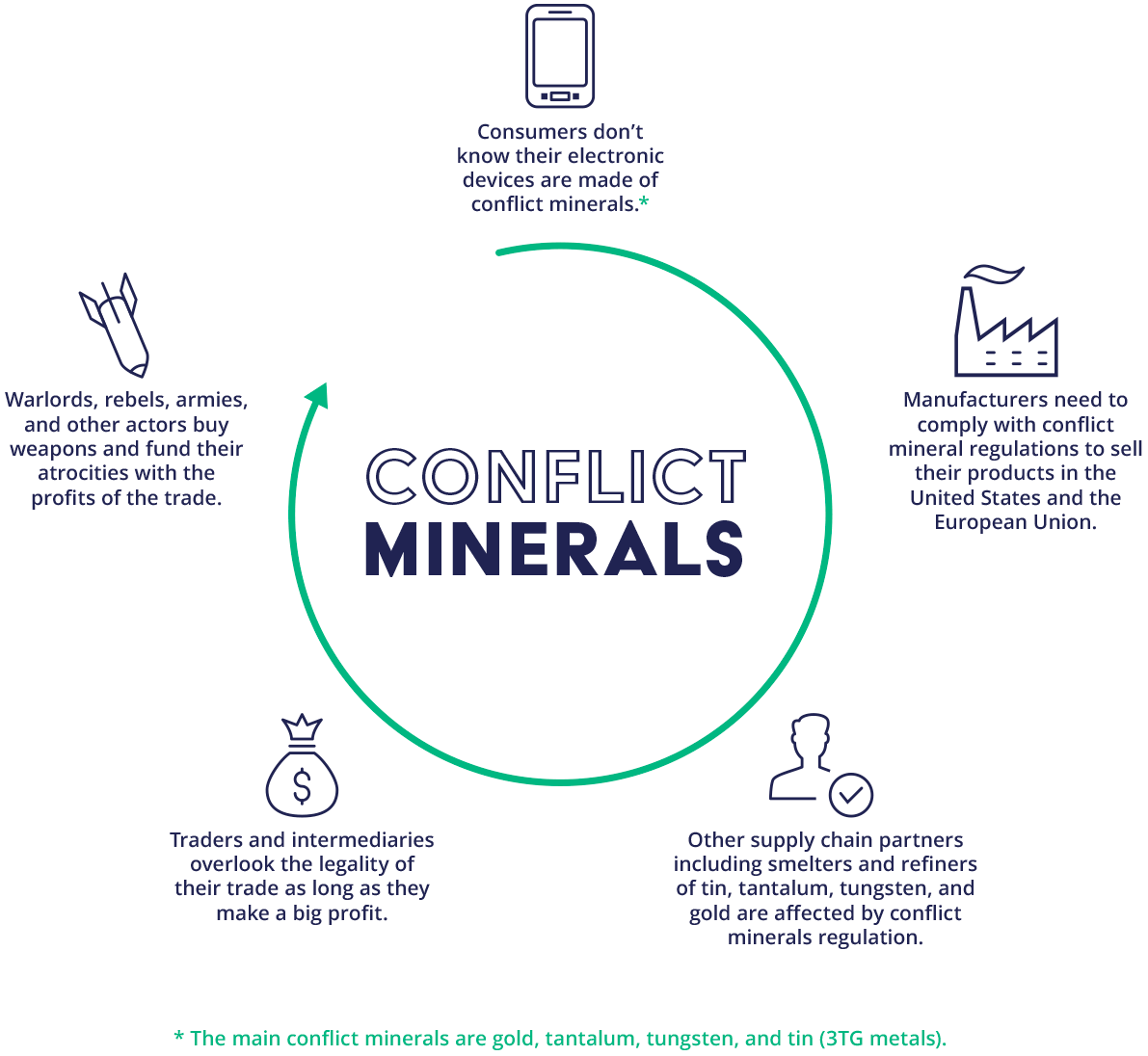What are Conflict Minerals?
Conflict minerals are minerals that are mined and produced in certain politically unstable countries (such as the Democratic Republic of the Congo) and their surrounding areas. The mining of these minerals often leads to political tensions and civil conflicts.
Common Applications of Conflict Minerals
Conflict minerals are widely used in electronic and electrical products.
-
Tantalum:
Tantalum is often used in capacitors in electronic devices. About half of the world's tantalum metal is used in the production of tantalum capacitors.
-
Tin:
Tin is mainly used in the production of tinplate (tinplate) and various alloys in the metallurgical industry. Most electronic devices currently use tin. In addition, various connectors are mainly made of copper-tin alloy.
-
Tungsten:
Tungsten is a rare metal that is an important component of contemporary high-tech new materials. A series of electronic optical materials, special alloys, new functional materials, and organic metal compounds all require the unique properties of tungsten. Although the amount is not large, it is very important and cannot be lacking. Therefore, it is widely used in contemporary communication technology, electronic computers, aerospace development, medical and health care, photosensitive materials, optoelectronic materials, energy materials, and catalyst materials.
-
Gold:
Gold is widely used in electronic circuits due to its good conductivity. In addition, lead-free connectors are often gold-plated.

source: Arena Solutions
Regulations on conflict minerals
The main regulations on conflict minerals include the following:
- The Dodd-Frank Wall Street Reform and Consumer Protection Act of the United States
- The Conflict Minerals Regulation (EU) 2017/821 of the European Union
- The Guidelines for Responsible Management of Supply Chains of Responsible Minerals in China

1. Dodd-Frank Wall Street Reform and Consumer Protection Act
The Dodd-Frank Act requires companies that manufacture products that contain conflict minerals to report the source of those minerals to the Securities and Exchange Commission (SEC). Companies must submit a report on their use of conflict minerals by May 31st of each year. The report must include information on the source of the minerals, the quantity used, and the smelters and refiners that processed the minerals.
2. The EU Conflict Minerals Regulation
The EU Conflict Minerals Regulation requires companies that manufacture products that contain conflict minerals to take steps to ensure that the minerals are not sourced from conflict areas. Companies must develop a due diligence plan that identifies and assesses the risks of conflict minerals in their supply chain. They must also implement measures to mitigate those risks.
3. The China Responsible Minerals Supply Chain Due Diligence Guidelines
The China Responsible Minerals Supply Chain Due Diligence Guidelines are voluntary guidelines that provide companies with guidance on how to source conflict minerals responsibly. The guidelines recommend that companies develop a due diligence plan that includes measures to identify and assess the risks of conflict minerals in their supply chain.
Responding to the challenge of conflict minerals
Companies can respond to the challenge of conflict minerals by taking the following steps:
- Conduct due diligence to identify and assess the risks of conflict minerals in their supply chain.
- Implement measures to mitigate those risks, such as sourcing minerals from responsible sources and using conflict-free smelters and refiners.
- Report on their efforts to address conflict minerals.
Conflict minerals are a serious problem that can contribute to armed conflict and human rights abuses. By taking steps to address the challenge of conflict minerals, companies can help to prevent these problems and promote peace and stability in the Democratic Republic of the Congo and other conflict-affected areas.
For more information about the CFSI reporting framework, please visit https://www.responsiblemineralsinitiative.org/.




